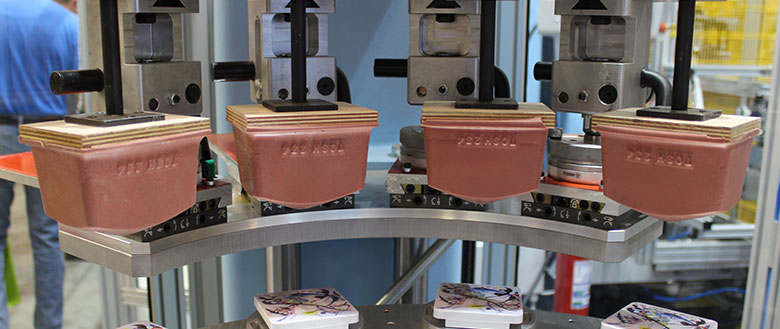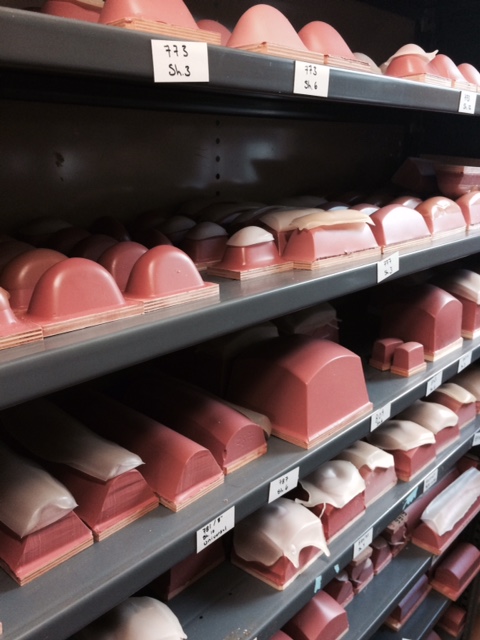Our new Transfer Pad Catalog is now available!
Download NowTRANSFER PADS

Without the right pad you’ll never successfully transfer the image to your part.
Choosing the correct print pad can be counter intuitive unless you understand the how and why of the process. While we can certainly teach you to do this, in the end there is no substitute for decades experience and our shelves, which are filled with hundreds of shapes to test.
Our first suggestion will always be for you to send us a part to work with and we can narrow down the choices based on:
- Dimensions and type of graphics to be printed
- The shape of the surface to be printed
- The amount of pressure required to compress the pad efficiently, and if your machine has it
- Size of the optimal pad and if it will fit in your system
- Finish or texture of your part
- The amount of compression your part can accept
It should also go without saying that not all pads are created equal. A few dollars “saved” up front can have an immediate and drastic impact on your production and quality.
Our pads are manufactured of the highest quality German silicone. The molds we use are based off of original high quality masters. The backs are marine plywood, aluminum or Delrin, all of which are precision machined. This is not the case with many cut rate pads on the market, and it shows. When you re-order a pad, you want to be able to put it in the machine and run. Our production is carefully screened for durometer, flawless print surface and consistent dimensionality. A pad you order today will be flawlessly duplicated in 6 months or a year.
Episode 1: Fundamental Pad Printing Techniques Introduction
A introduction with Innovative Marking Systems president Trent Pepicelli on the pad printing process and our pad printing video blog series.
Looking for a Better Understanding of Pad Printers?
Hear it from Our Experts
